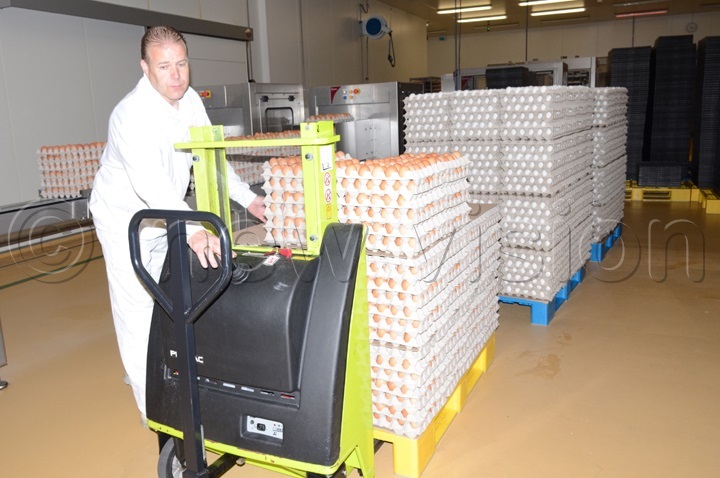Poultry sector on edge as importation of chicks suspended
Farmers and importers of the Dutch products say that the umbrella ban on all importations was not necessary
The Uganda government has suspended the importation of day-old chicks from the Netherlands after an outbreak of the deadly HN Avian Flu in the country.
In a letter written by the Ministry of Agriculture Animal Industry and Fisheries (MAAIF), Department of Animal Health, dated November 4th, all import licenses issued for the importation of day-old chicks were suspended.
"Following an outbreak of highly pathogenic avian influenza in the Netherlands, the Department of Animal Health in the Ministry of Agriculture Animal Industry and Fisheries has put a ban on importation of day old chicks, hatching eggs and any other poultry products including feeds from the Netherlands," a letter written by Dr Aminah Namwabira, Senior Veterinary Inspector, Entebbe airport says.
The ban included even day old chicks transiting through the Netherlands to Entebbe.
Outbreak in the Netherlands
The Netherlands is one of the leading sources of day-old chicks and other poultry products for Uganda. Currently, most of the livestock feeds on the market come from there, through companies like Koudjis Nutrition Bv/Kaffika feeds and Trouw nutrition/Champrisa international.
There are also thousands of chicks that are imported through companies like Agrarian Systems. According to import figures, chicks worthy over US$2m are imported from the Netherlands per year, in addition to livestock feeds.
This is after livestock health officials reported two cases of avian flu in the Netherlands. The cases were reported in two wild mute swans during a routine test by surveillance officials. Dutch Animal Health authorities have further announced the culling of over 35,700 broilers in Arnhem after fears that they may be infected.
Across Europe, measures to track and stop the spread of the disease have been taken in the UK, where a farm in Chesire has already culled 13,000 birds.
Impact on sector
There are fears of a big shortage of day-old chicks if the ban persists. "There are no quality day-old chicks breeders in Uganda and this is why Netherlands and Belgium supply us," says Johnson Basangwa, who imports about 10,000 chicks from Verbeek breeders, through KLM airlines monthly. He is afraid that if the ban persists for long, the sector will be decapitated. Another dealer, Kaffika expected 120,000 day-old chicks this month!

Farmers and importers of the Dutch products say that the umbrella ban on all importations was not necessary.
Josephat Byaruhanga, Agriculture Policy Officer at the embassy of the Netherlands agrees that the government of Uganda is right to get concerned about the situation, however, the embassy is engaging MAAIF to find solutions that will not decapitate the sector.
"We are engaging MAAIF to get a solution. We know that there are HN free zones in the Netherlands. For example, we know that day-old chicks do not come from commercial farms, but rather from highly hygienic breeding centres that are not affected by the flu. These are the issues that we are looking at," Byaruhanga said.
Farmers say that banning feeds was also not right because these have no link to the farms. "We have engaged MAAIF and got a clarification that the ban should not include feeds because the two are not related at all," says Francis Baguma, from Kaffika Feeds who distributes feeds from Koudjis. Kaffika also imports day-old chicks and had a consignment of 120,000 coming this month.
"We told the ministry that feeds are not only for poultry so having them banned was not the right move," Chris Magezi from Champrisa International, distributors of Hendrix feeds from Trouw nutrition says.
With the feeds exempted from the ban, the challenge now is for chicks from other countries transiting through the Netherlands to Uganda. Uganda also imports chicks from Belgium through KLM, the Dutch Airlines.
"We think that banning transiting chicks is also not necessary because they do not get into contact with anybody during transit," Baguma says.
He explains that KLM delivers the chicks on the day of hatching because it comes directly which other airlines cannot do because they have to transit through other airports.